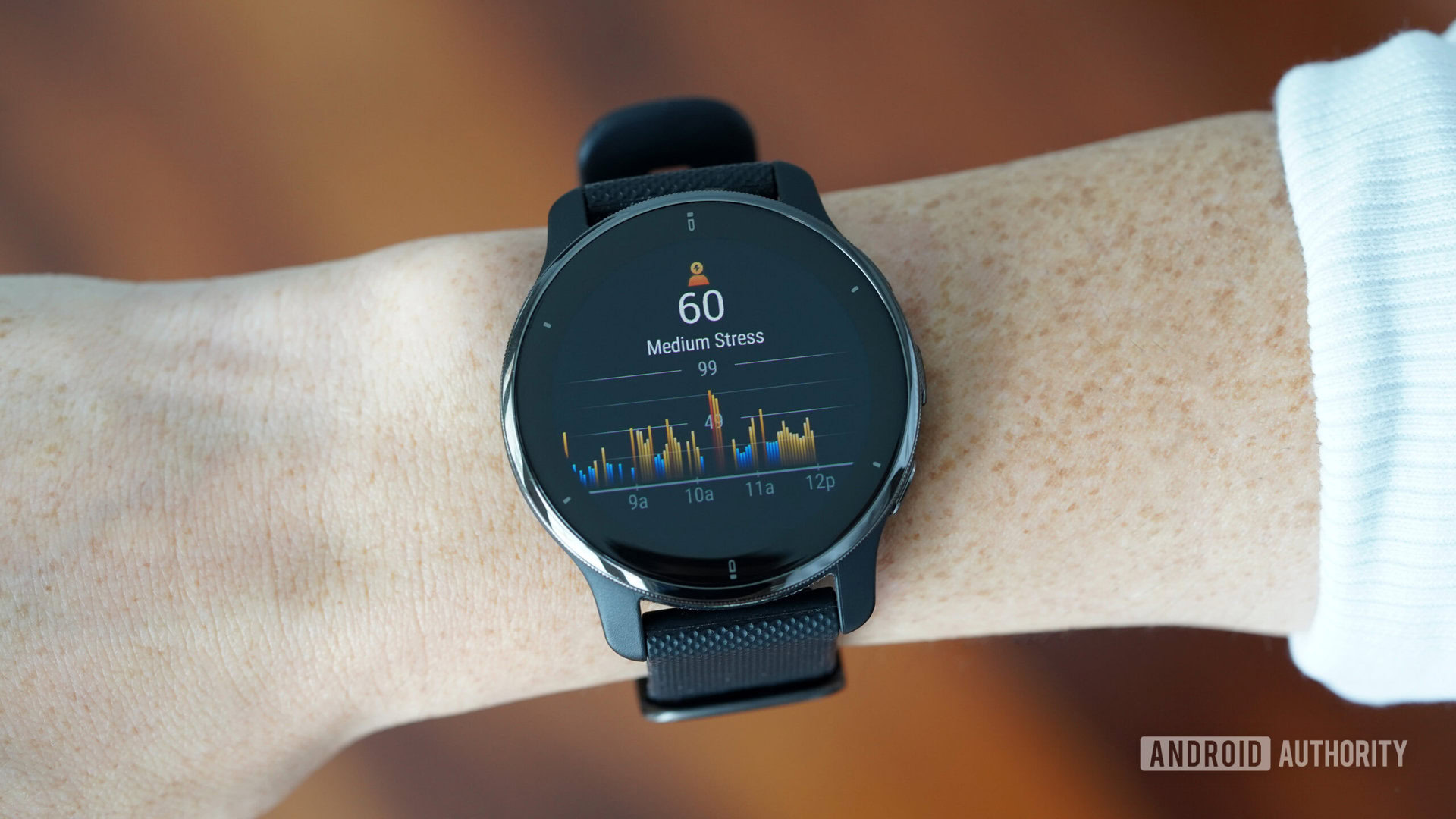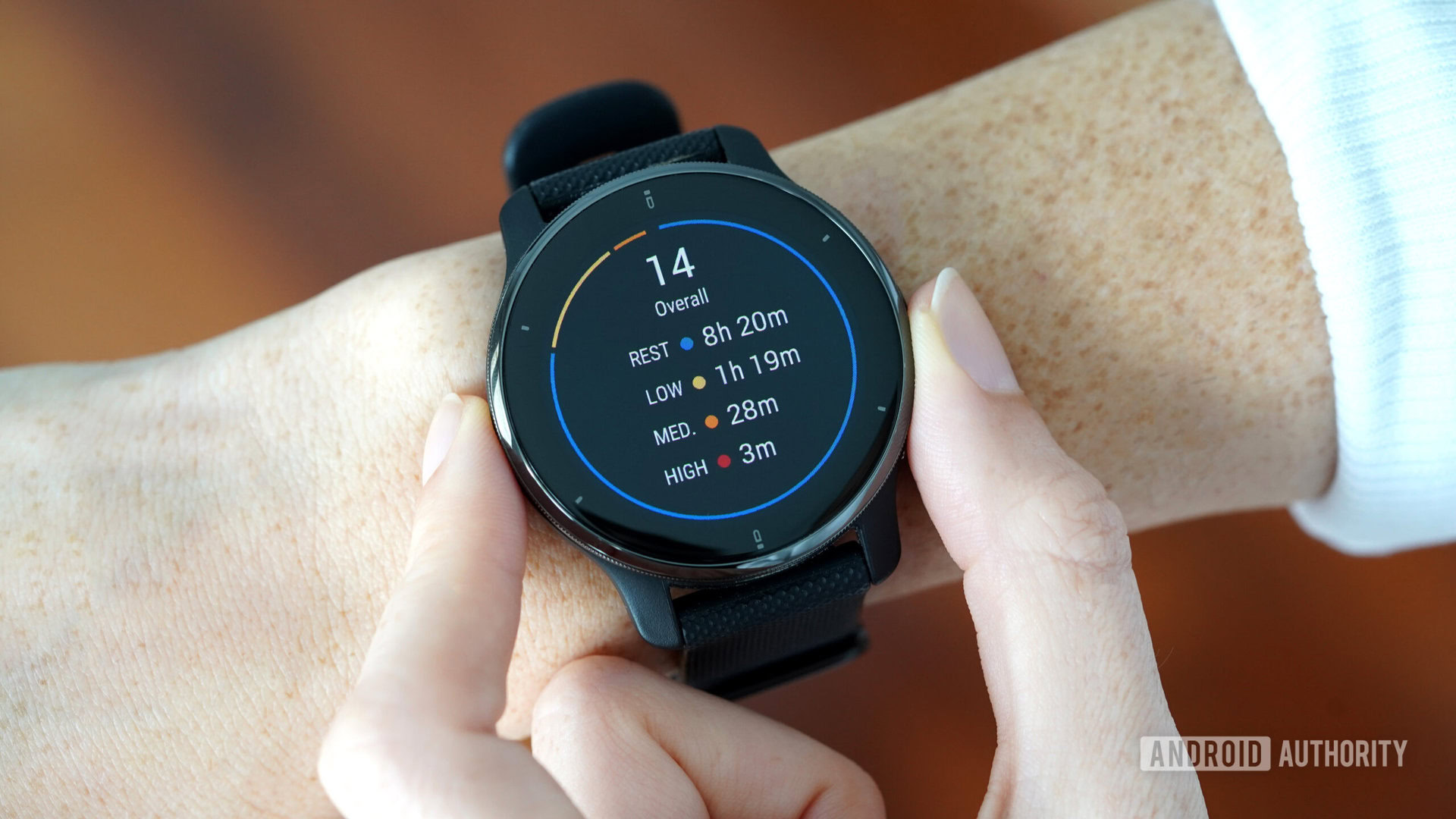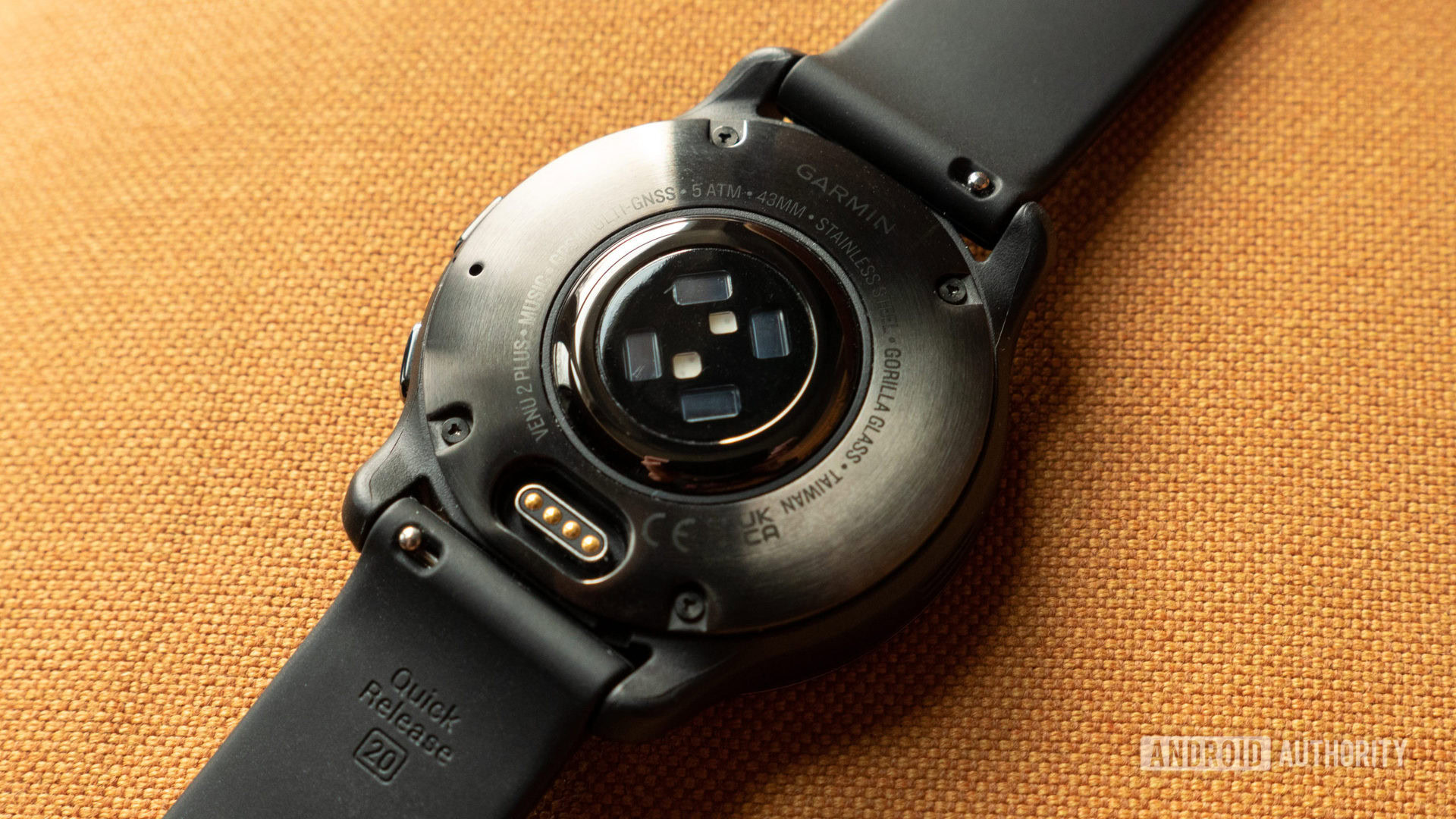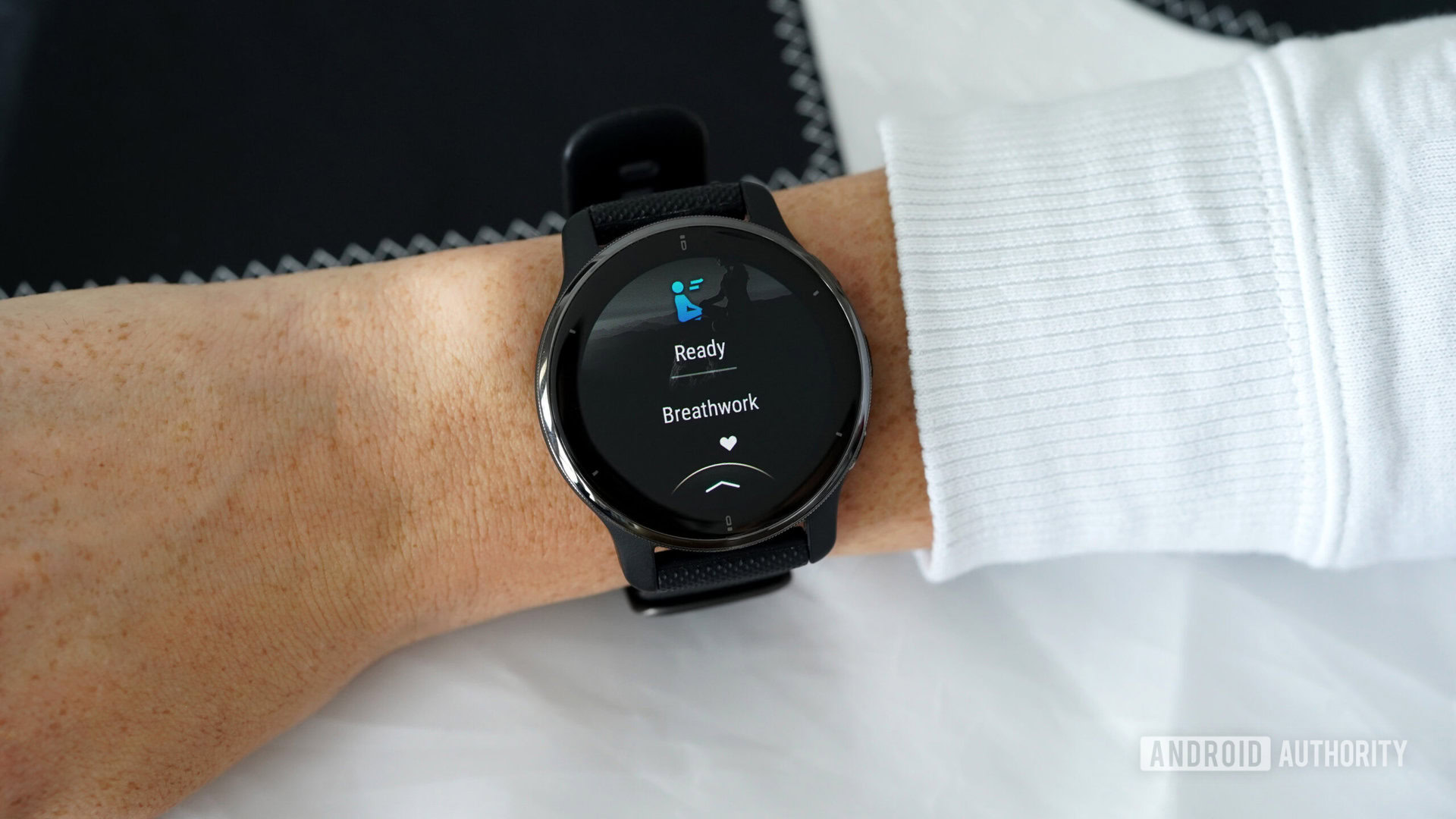Affiliate links on Android Authority may earn us a commission. Learn more.
How does Garmin measure stress?

Far from simple workout companions, Garmin devices are keeping an eye on users’ health beyond the gym with dedicated stress monitoring. Whether you’re fielding conference calls or standing in a crowded grocery store line, your device can help clue you in on what stressors are affecting you most throughout the day. Find out how Garmin measures stress and what you can do with your results.
QUICK ANSWER
Garmin uses heart rate variability data and a Firstbeat Analytics algorithm to help users determine their stress levels throughout the day.
JUMP TO KEY SECTIONS
How does Garmin measure stress?

Garmin tracks users’ stress levels by monitoring their heart-rate variability (HRV), or the variable length of time between an individual’s heartbeats. Though fluctuation is quite small (read: a fraction of a second), HRV still offers considerable insight.
If your heart rate is highly variable, it means your body is capable of adapting to change and suggests low stress levels. People with high heart rate variability are usually healthier overall. Less variability between heartbeats indicates high stress levels and less adaptability. When a user’s heart is beating quickly, there is less opportunity for variability.
Garmin devices record and analyze users’ HRV to provide stress level scores between 0 and 100. The algorithm Garmin uses involves comparing a user’s baseline measurements to their current HRV in order to determine if they are stressed. Here’s a quick breakdown of the scoring Garmin provides:
- 0 – 25: Resting state
- 26 – 50: Low stress
- 51 – 75: Medium stress
- 76 – 100: High stress
With a compatible Garmin device, you can view your stress data on demand, evaluate a four-hour window, or review your 7-day average. You can also open the Garmin Connect app on your paired smartphone for more details. Go to Health Data > Stress Score to dig into more advanced data.
How accurate is the Garmin stress measurement?

While Garmin’s stress measurements are considered fairly reliable, they are not perfect. Many factors, including physical activity, can affect your data. Garmin does not include workouts in its all-day stress monitoring calculations so if you are too active to determine stress levels a score will not be recorded. Likewise, things like illness, fatigue, smoking, or alcohol can also illicit physiological stress responses which may alter your scores compared to your perceived emotional stress.
Finally, Garmin’s data is only as reliable as its heart rate sensors. We’ve been impressed with the accuracy of the sensors on many of Garmin’s latest devices, however, they still can not compete with a medically validated heart rate variability monitor. For the best results, make sure to wear your device correctly with a snug, comfortable fit. Sporting your device consistently for activity and sleep monitoring will help your wearable determine the most accurate baseline data.
What is a good stress level?

Stress is not always a bad thing. Positive stress can help you accomplish goals. It can also indicate excitement or surprise. The idea is not to eliminate all stress, but simply to avoid constant, extended periods of high stress. Generally speaking, Garmin encourages users to aim for a balance between stress and rest. If your Garmin device measures elevated stress levels, some will prompt you with breathing exercises to help you return to a calmer state.
FAQs
High stress levels during sleep may indicate oncoming illness. External factors like alcohol consumption can also affect your levels overnight.
A few Garmin watches have optional relax reminders that appear on your screen when the device detects your stress levels are unusually high. These can be enabled or disabled in the Garmin Connect app.
Most newer Garmin wearables track stress, including the Fenix 7 series, Venu and Venu Sq lineups, and newer Forerunner devices. If you have purchased a Garmin in the last few years, the odds are the device offers stress tracking. Visit the Garmin website for a complete list of compatible devices.